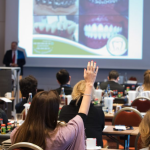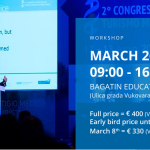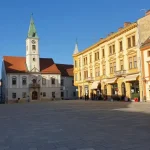March 20, 2019 – More positive noises for the Croatian medical tourism industry from International Clinic Mentor Daniel Coulton Shaw, following his facilitation of the 5th Annual Medical Tourism Conference in Zagreb last week.
He arrived with a boy band in Slovakia and helped to build a friend’s dental website, only to turn that business into Slovakia’s leading dental tourism clinic. As if that was not enough, he then put together GCR, Global Clinic Ranking, a business which – along with his clinic mentoring – makes Daniel Coulton Shaw not only a regular visitor to the Croatian medical tourism scene, but ideally placed to comment on the direction Croatia is, and can be, taking. TCN caught up with Coulton Shaw after the conference.
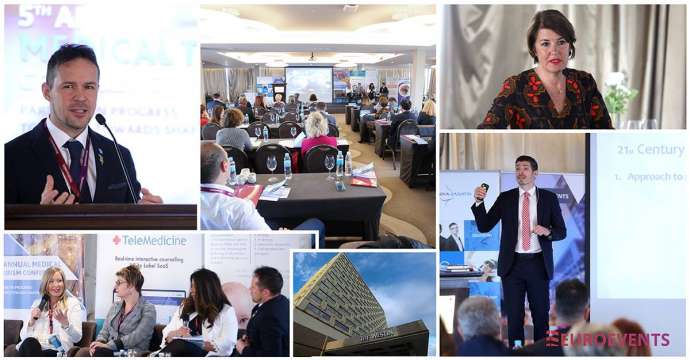
1. You have just made your latest trip to Zagreb where you were facilitating at the 5th Annual Medical Tourism Conference at Hotel Westin. How did it go and what did you learn?
I had the pleasure of returning to the hotel Westin in Zagreb again for yet another medical tourism conference (I attended the HTI conference there last year).
The main difference for me with this particular conference (MTCE organised by EuroEvents annually) are the practical learnings and networking opportunities available.
As rather than “fluffy talk” and irrelevant statistics – I prefer data and ideas that I can apply immediately to the clinics & hospitals that I work with as well as notice what “doesn’t work” in the realm of reaching patients from abroad.
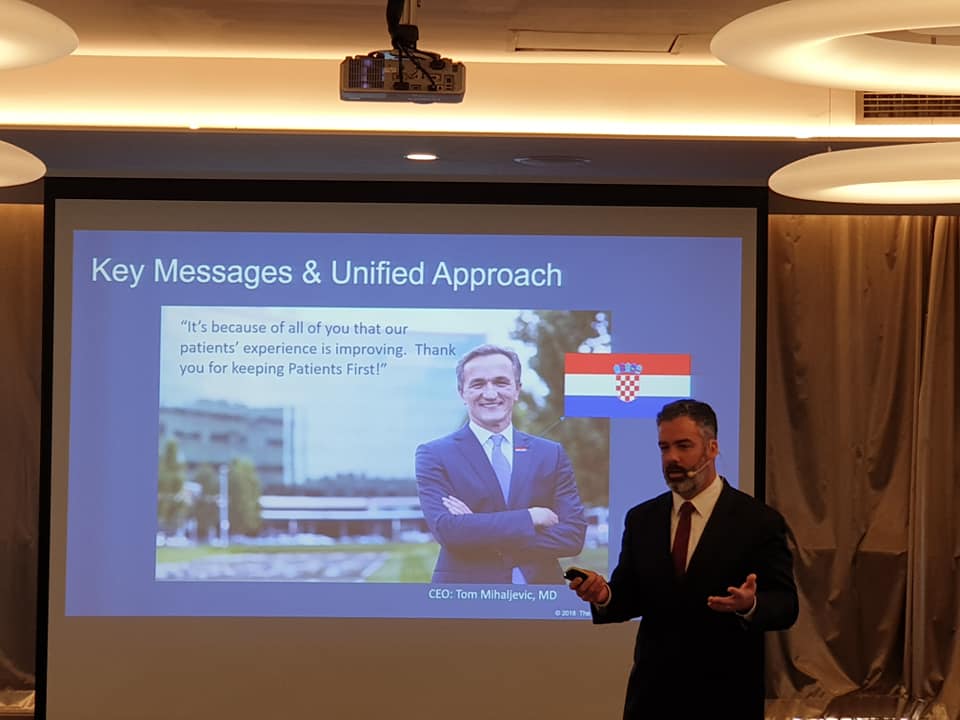
In particular, I was impressed to learn from Joe Sweet – Cleveland Clinic – despite their immense size and reputation – they’re still dealing with challenges that most private clinics and hospitals face – generating interest, converting that interest into patient bookings, and making the most of the patient experience to further improve treatment results, reputation and revenue. He had some excellent examples of how they approach those challenges and I saw the same principles could be applied to local clinics & hospitals.
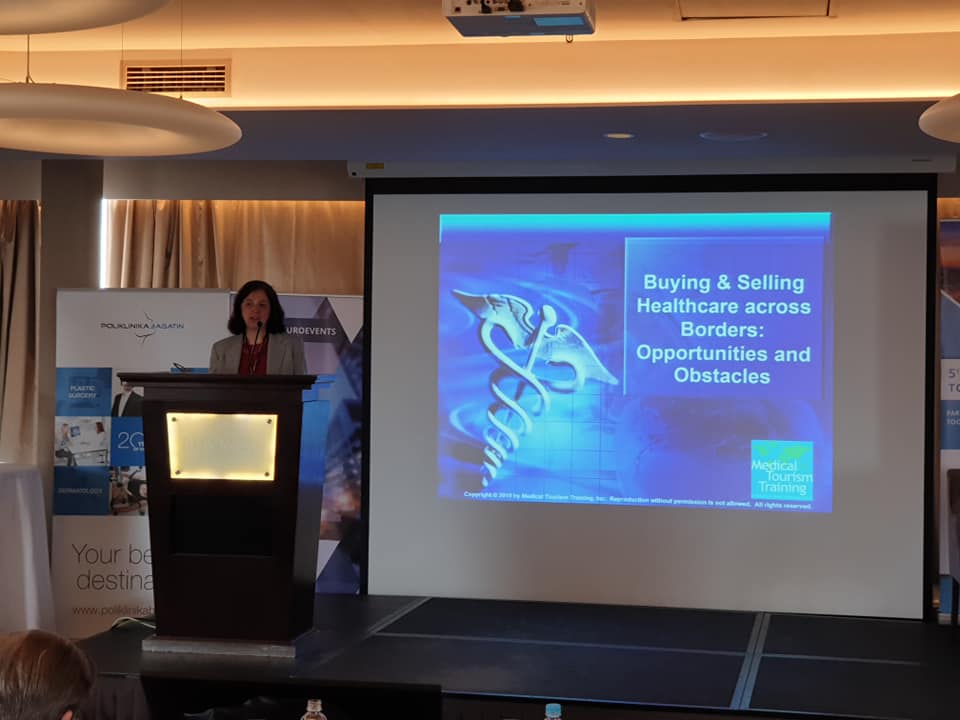
Elizabeth Ziemba covered the changing market of reaching individual patients towards reaching larger groups, national companies, insurance agents and governments instead, a trend I too see happening worldwide currently, especially with private Asian clinics.
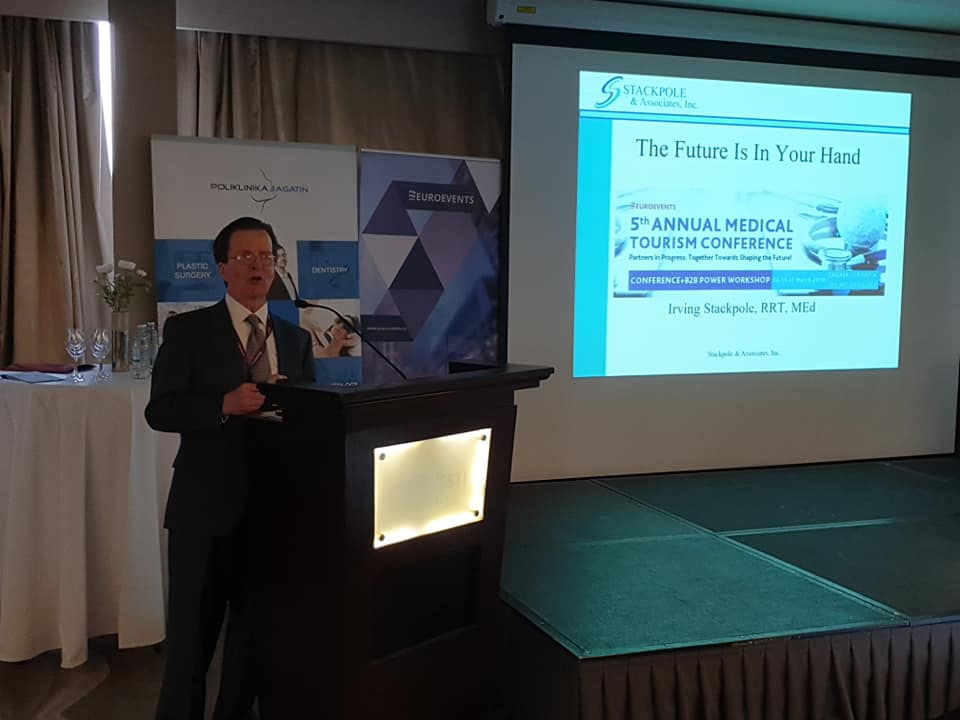
Irving Stackpole demonstrated the changing face of “medical travel” and how medical travel may not be as necessary as we think in the near future as personalized healthcare becomes more readily and affordably available through the rise of new healthtech capabilities. I am very aware of this developing trend, that will cause a number of clinics & doctors to close their doors to patients if they don’t prepare well for this new digital era.
My colleague, Alexander Zakucia brought a new topic to the table at healthcare conferences – the call centre and how to covert more patient leads to bookings – I haven’t seen that presented elsewhere and was glad that it was a well-received topic by the attendees present at the event.
Finally, Claudia Mika demonstrated the positive effects of quality standards and accreditation on the overall patient experience. We’re both advocates of bringing the highest-level medical quality options to the medical traveller, and am glad that she continues to remind medical tourism providers of the impact of how an optimized patient journey can be through keeping to standards.
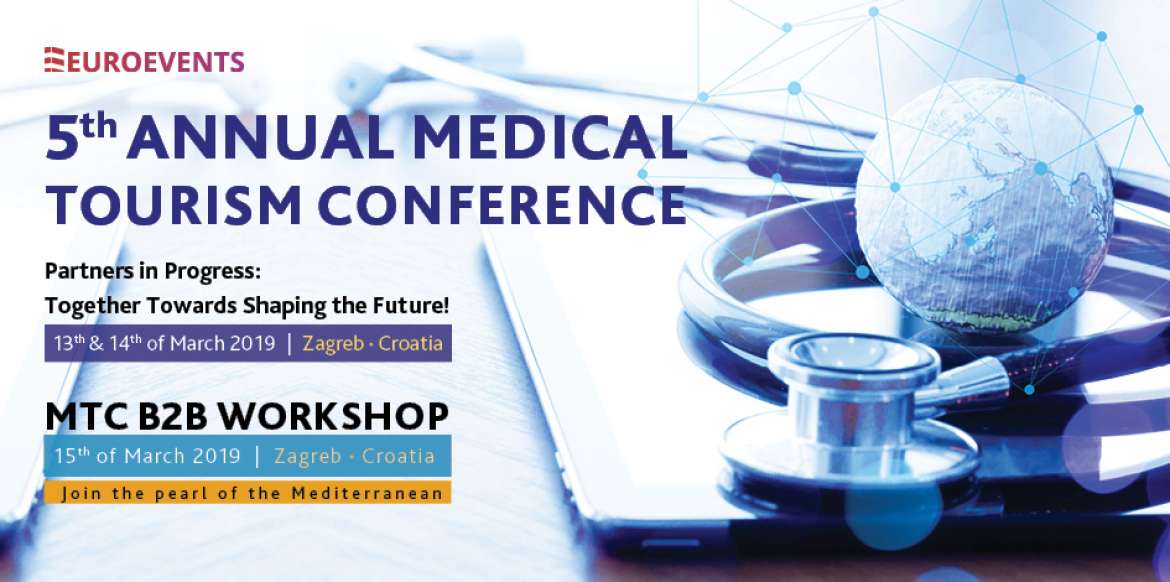
2. For our readers who are unfamiliar with you, tell us briefly about your background in the medical tourism industry.
I came into the “medical travel” industry completely by accident. As a professional musician, I managed the website for my Celtic rock band, and was asked by a doctor friend in Slovakia to help with his website and build a “fan base” for his clinic. I had never before heard of the concept that people could travel abroad for medical treatment.
For my friends’ new website, I did a bit of research and saw that Brits were increasingly travelling to Hungary and Poland for cheaper dental treatment options. So I set up a website called dentalholiday on a co.uk domain.
To our surprise from a 3 person dental clinic, we quickly developed into Slovakia’s leading dental clinic for international patients within just a few years reaching over 10,000 patients – despite Slovakia not being known at all as a health choice destination.
The main hurdle was proving to potential patients that despite the cost savings, having treatment abroad offered them an even higher level of quality than their own home clinic. I created a simple model based on hard facts to prove this to patients, and the idea worked magically.I’m a fan of using data to manage many decisions I make both professionally and personally, and through a joint partnership with my friends in Google who were intrigued by my model of reaching patients, we developed a clinic rating that assesses almost half a million clinics & hospitals worldwide, to help patients make a transparent, safer choice of private healthcare.
Since then I personally work with a number of clinics & hospitals throughout the world, simply implementing what I’ve seen work elsewhere, helping them solve challenges and produce measurable results.
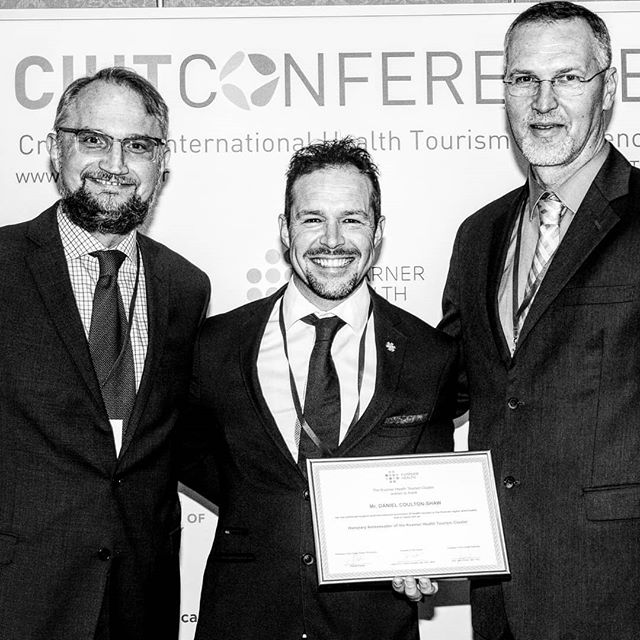
3. You are a regular visitor to Croatia, working with many clinics here. How do you view the industry here, and how has it changed in the last 5 years?
Something unusual is happening in Croatia. Elsewhere I’ve seen governments and associations pushing clinics and hospitals to “step up their game” and make the region more attractive for medical travellers. But in Croatia, I’ve noticed much more of the opposite – a cluster of private clinics & hospitals pushing governments & associations to “step up their game” and support them in making the region more attractive for medical travellers.
This reminds of progressive countries where the authorities have thankfully taken a step back and actually started listening to their people, and turning to the private companies for the direction that bring in huge revenue streams to the regions and countries as a whole.
I am fully confident that if the healthcare sector can make their voice heard enough and some basic changes implemented from the side of the authorities, Croatia has a real chance of becoming the new medical tourism hub of central Europe within 5-10 years.
4. Several experts have said that Croatia has the potential to be in the world’s top ten medical tourism destinations in the next 10 years. Do you agree with that assessment, and what needs to happen to make that a reality?
Apart from the obvious geographical benefits – easily accessible from Italy, Switzerland, Austria and former Yugoslavia regions, coupled with the sun /sea/mountain destination perception, I have seen that there is a growing, measurable, perception of “excellence” towards the country in the sports, private business and modern health sectors.
As for making that happen, please allow me to share with you a simple roadmap that I consider to be the way forward.
All my data & research with GCR on over 10,000 patients points towards the fact that today’s medical tourism consumer in Europe makes their decision across 3 factors:
1. Price
2. Proximity
3. Perceived Quality
So in the case of Croatia, I see the pricing & positioning of healthcare in the mid-range as are successful healthcare regions in the Czech Republic, Poland, Hungary, Slovakia & Romania.
By “proximity” I’m thinking of “how easy can I get there?” “do they understand my culture/language” “do I feel safe there?” and with Croatia, there’s obviously work still to be done. Flight connections, although on the increase over the past 5 years are still not at the level of competitor countries. Ferry connections over from the mid and south of Italy or Montenegro are still not at frequency and speed needed, and the infrastructure for emergency helicopter landings has not been set up.
Many Croatian clinics have proven to be able to work in Italian, however further reputation of solid language abilities in German, Arabic, Russian, Chinese and English needs to be developed among the healthcare community to the level of that of their peers (Hungarian clinics do well with English & German, Polish clinics with Norwegian & English, the Czech Republic with Russian and English).
Potential patients from further afield than neighbouring countries need to be reassured that the Croatian environment is safer and more welcoming than currently perceived and that international standard rights, precautions and partnerships have been set up in case of medical complications that arise after returning to their home country.
As a newcomer, Croatia has no real “proof of quality” reputation yet within elective & advanced medical treatments apart from within the sports community, so I believe that this quality reputation would seem to be Croatia’s’ biggest hurdle.
Sharing transparent treatment outcome data from the region along with successful case studies and 3rd party proof of quality through ratings or accreditations would certainly help accelerate this process.
Finally, the huge Croatian ex-pat community could be mobilized to speed this up even further – a method proven in the UAE by bringing their ex-pats home through incentivized medical treatment, and in Hungary with supporting talented Hungarian doctors back to work in the country.
5. Let’s talk realistic and achievable target markets for Zagreb and Croatia. A recent strategy document for the Zagreb Tourist Board recently identified target countries like Slovenia, Italy, Austria, Germany, Russia, USA and the United Arab Emirates, but not the UK. Do you agree with this assessment, and if not, where do you think the Croatian medical tourism industry should be focusing?
There are a number of strategies that I’ve seen work in neighbouring countries attracting patients from a wide range of nationalities to them for medical treatment, for example:I know clinics in Hungary that have Koreans as their no.1 patient due to partnerships with the KIA and Samsung factories.
I know clinics in Poland that have Chinese and Africans as their no.1 patient due to partnerships with the local governments and communities.
I know clinics in Slovakia that have Arabs as their no. 1 patient group by supporting the flight route to Arab countries.
However to begin – I would start at home. Meaning, that I’d focus on the ex-pat communities living within Croatia for professional or personal reasons.
Once awareness of affordable, quality and likeable has reached a tipping point locally, I’d consider the untapped medical options of patients in Italy, Serbia, Slovenia, Montenegro, Albania, Bulgaria – so far being reached only for dentistry and low-risk elective treatments.
Then I’d consider the German-speaking market, as an alternative to options available in Hungary & the Czech Republic by proving quality care options.
Only then I’d consider working with the UK & Scandinavian markets – very different markets needing a completed different approach here, but that key would certainly first need to be supported by extra suitable flight connections year-round to be a sustainable business model.
Alongside that, as I mentioned earlier, I’d always consider incentivizing Croats abroad and use current positives such as the sports, pioneers in health and the film industry to drive patient awareness across the globe.
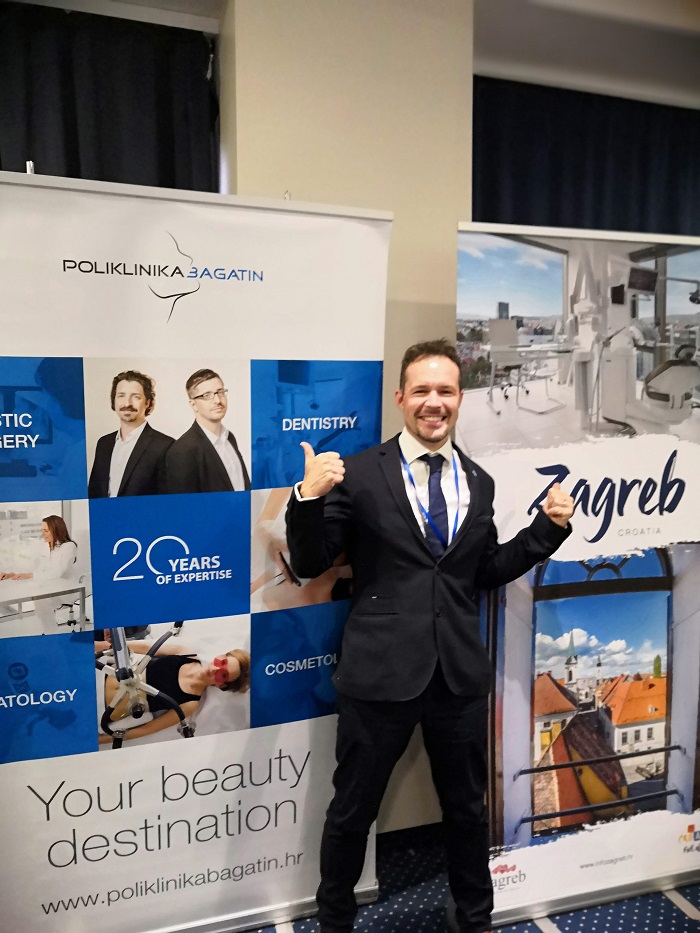
6. You work with a lot of clinics all over Europe. Which ones stand out in Croatia, why and for which types of healthcare?
Yes, I work with a little over 200+ private clinics with Croatia, and it would be unfair to not mention all of them, as by working with my company (GCR) they have demonstrated their commitment to providing international standard medical care for their patients and implementing “best practices” to become better.
I can, however, mention some very unique medical facilities that I feel are unsurpassed worldwide. I have personally visited 1000’s of hospitals and clinics on every continent and have rarely seen clinics like Rident, Kalmar, Akromion, Svetlojst & St. Catherines for example – each of them bringing something very unique to the groups of patients they cater for.
Then there are the private healthcare personalities of Croatia – Doctors such as Nemec, Brozičević, Simunic, Gabric and Primorac, for example, who have in the past brought their personal reputation as medical experts to the international table.
I am personally very grateful to Anita Šimunić from Polyklinika IVF, Alfred & Vladimir from Kvarner Health and Ognjen & Tea from Bagatin who have been instrumental in introducing me to the challenges and opportunities of Croatian private medical care.
The Bagatin clinic team had proven a very workable model of local & international expansion that can be implemented into other local clinics as well if they are willing to pay the price.
On the sweat and shoulders of these core private clinics, doctors and medical teams the Croatian medical travel industry is currently held, many at the sacrifice of their personal lives, and I hope that they will come to see their fruits of their efforts 10x in the years to come for their own businesses, the private healthcare industry and the country as a whole.
Apart from future financial or political setbacks that could occur within this region of Europe, I believe that Croatia has a solid 5-10 year window and is well-suited to make it to the forefront of becoming a medical tourism hub of central Europe. After that, all big data signs are showing that private healthcare options will be transformed by personalized, at home technological and scientific advancements beyond our current reach around 10-20 years from now.
When the age of “singularity” arrives – the moment when artificial intelligence surpasses human intelligence, medical travel will become a relic of the past, not only for Croatia but for the rest of the world as well.
I’m sure we’ll then have more pressing issues to deal with 🙂
7. Finally, I have to ask you about a comment you left on one of my recent articles. The subject was the recently published Zagreb Tourist Board medical tourism strategy document. My article was, Burning Dollars in Zagreb: from Cancelled Conferences to Health Tourism Reports. My article took a critical look at what Zagreb got for its $50,000 investment, something echoed by International Medical Travel Journal Editor Keith Pollard in an article today. You left the following comment on my article last week – do you care to elaborate on it?
I will, entirely free of charge, provide the Zagreb Tourist Board a Medical Tourism Strategy Map to replace the one that they were misleadingly provided.
It would be based on the fact that they would assign a full-time 5-6 person team chosen by me to follow out the steps in the strategy map for the next 2 years along with a budget of what they paid for their previous report for the implementation of the strategy.
I fully support the growth of the region with my whole and knowledge of international medical travel trends and strategies and believe that now, with the momentum of select private clinics and the increased visibility of Croatia in the world – we could actually bring Croatia as a contender as new medical hub of central Europe.
Yes, Croatia has gained a number of trusted friends over the past few years in its efforts to reach more international patients. These individuals, myself included, know the country and it’s private clinics well supported by experience and knowledge of working with other countries in similar situations.
I believe that putting together an actionable plan, based on facts with core, measurable milestones and scope for adjustments would be a step forward. This, of course, would have to be consulted together with key private clinic & hospital owners from the region and have the commitment of a task-based, full-time team with an allocated budget to make this happen.
You can connect with Daniel Coulton Shaw via LinkedIN, the Global Clinic Ranking or his Slovakian dental clinic.
To follow the latest in the Croatian medical tourism story, check out the dedicated TCN page.



